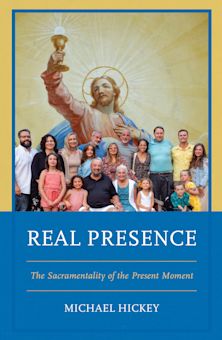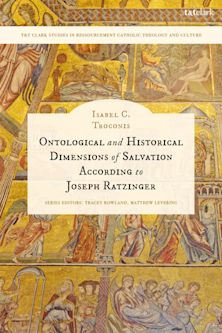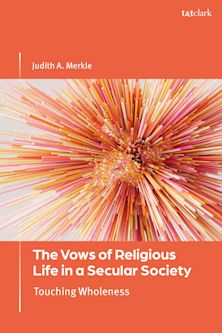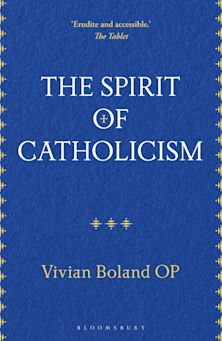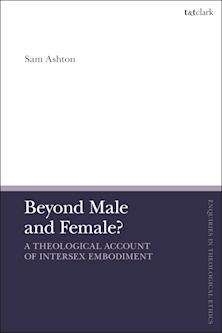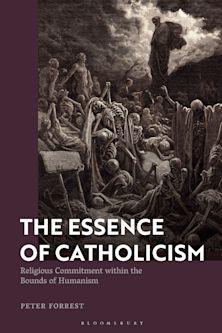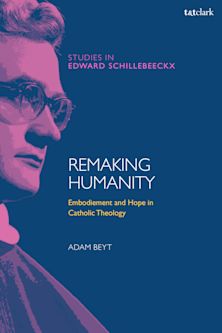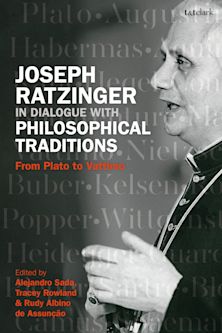- Home
- ACADEMIC
- Theology
- Catholic Theology
- Liturgical Peace, Liturgical War: Benedict XVI's Summorum Pontificum and Its Critics
Liturgical Peace, Liturgical War: Benedict XVI's Summorum Pontificum and Its Critics
Liturgical Peace, Liturgical War: Benedict XVI's Summorum Pontificum and Its Critics
Payment for this pre-order will be taken when the item becomes available
- Delivery and returns info
-
Free US delivery on orders $35 or over
You must sign in to add this item to your wishlist. Please sign in or create an account
Description
In 2007 Benedict XVI issued the Motu Proprio Summorum Pontificum, lifting restrictions on the celebration of the pre-reform Catholic liturgy. In 2021, Pope Francis overturned his predecessor's document, directly aligning himself with the critics of Benedict XVI's decision. Dekert's book disentagles the arguments of representative pro-reform critics of Summorum Pontificum, as well as the documents and discourse surrounding Traditionis Custodes.
Dekert evaluates these arguments in context, assessing the validity of the historical and anthropological claims supporting them, while questioning their underlying assumptions. He also analyzes the connections between the pro-reform discourse of liturgical experts and the Vatican's liturgical policies since 2021. The core theoretical framework of his analysis is Roy A. Rappaport's concept of the “obvious aspects of ritual,” which provides tools for a fresh perspective on the liturgical reform and the potential of Benedict XVI's liturgical option in addressing the ongoing liturgical conflict within contemporary Catholicism. This approach reveals the deeply problematic nature and lack of clarity in the expert discourse and the recent papal liturgical legislation at historical, anthropological, logical, and doctrinal levels.
Table of Contents
Abbreviations
Introduction
Chapter 1: Summorum Pontificum and the Relationship of Lex Orandi to Lex Credendi
Appendix: “The Roman Rite” in Summorum Pontificum
Chapter 2: Summorum Pontificum and the Liturgical Reform
Chapter 3: The Usus Antiquior and Contemporary Man/Culture
Chapter 4: Summorum Pontificum and the Reconciliation in the Church
Chapter 5: The Realm of Traditionis Custodes as Criticism of Summorum Pontificum
Chapter 6: The Realm of Traditionis Custodes and the Views of Critics of Summorum Pontificum
Conclusions: Non-Obvious Obviousness
Bibliography
Product details
| Published | Jan 22 2026 |
|---|---|
| Format | Hardback |
| Edition | 1st |
| Extent | 238 |
| ISBN | 9780567724670 |
| Imprint | T&T Clark |
| Dimensions | 9 x 6 inches |
| Series | T&T Clark Studies in Ressourcement Catholic Theology and Culture |
| Publisher | Bloomsbury Publishing |
About the contributors
Reviews
-
Dekert's book is important for anyone interested in the solid reasoning behind Benedict XVI's document reviving the older form of Catholic liturgy. While these are familiar facts, what is innovative about Dekert's work is that it brings together in one place the diverse and scattered views and arguments of those opposed to the liturgical reform introduced in the Catholic Church by Pope Benedict XVI in 2007. It is important to see these diverse ideas, presented not only in books but often in fleeting writings and polemics, synthetically connected. Yet the motu proprio Summorum Pontificum was constantly under fire from hostile church intellectuals and even some high-ranking clergy. Thanks to Dekert's work, we can see and evaluate the intellectual coherence-or lack thereof-of these arguments not only in the context of Catholic tradition but also in their internal sense. Importantly, Pope Francis's motu proprio Traditionis custodes, intended to annihilate the German pope's liturgical reform, was also subjected to a coherence test. It is no surprise that Pope Francis's text failed this test, but it's thanks to Dekert's book that we can clearly understand why. Dekert provides all the necessary context so that every reader can understand why the liturgical war in the Catholic Church has flared up with such force in recent years. It's undoubtedly a must-read.
Tomasz Rowinski, editor-in-chief of Christianitas, Poland











